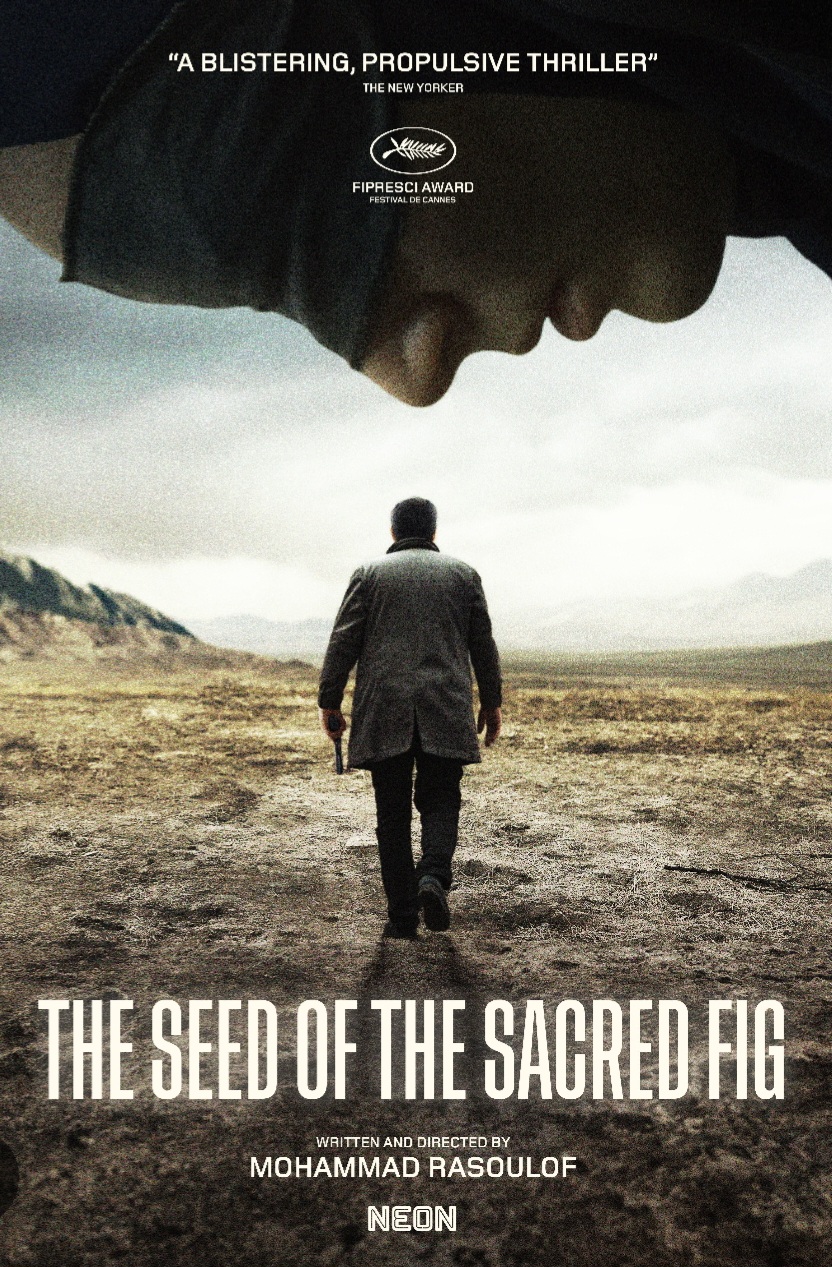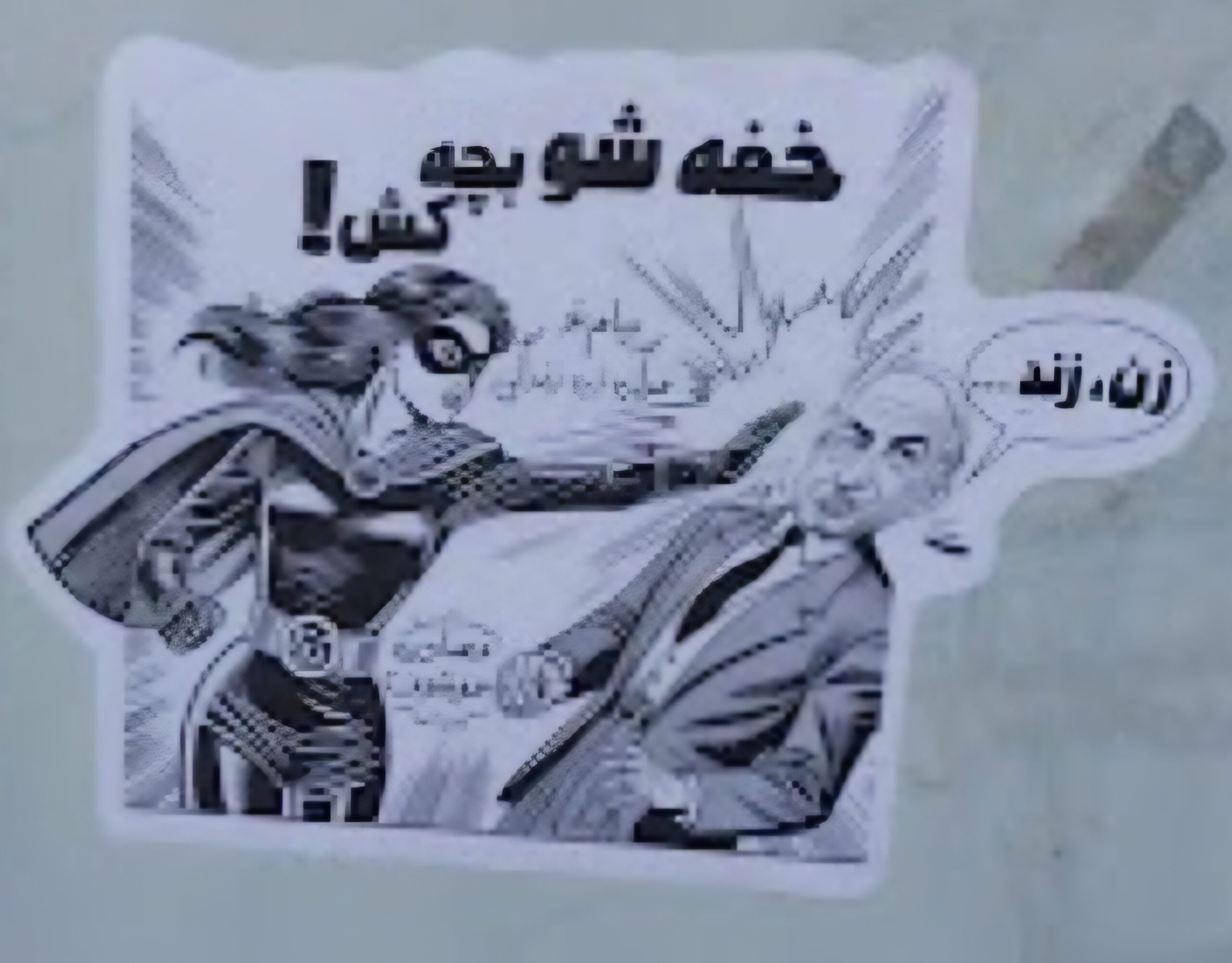“Woman, Life, Freedom” protests across Iran followed the death in police custody in September 2022 of a Kurdish 22-year-old Mahsa Jina Amini. Amini had been confronted by Iran’s so-called “Guidance Patrol” in Tehran for wearing her headscarf “inappropriately.” The authorities accused her of showing too much hair, and claimed that this was “un-Islamic,” “indecent”.
It was from this event that the slogan “Woman, Life, Freedom” echoed around the streets of Iran and the rest of the world, sometimes in Kurdish as “Jin, Jiyan, Azadî,” a slogan originating in women-led Kurdish movements. Further solidarity protests took place last year in response to a wave of executions taking place across Iran, executions that also, as well as targeting those who have been standing shoulder to shoulder with women shouting “Woman, Life, Freedom,” have been directed at other communities, Arab, Balochi and Kurdish among them.
This necessary solidarity with the women and all of the oppressed of Iran was shamefully ignored by some sections of the left, bewitched by a “campist” view of the world, by the false notion that there are “progressive” regimes allied against the West, of which Iran is supposedly one, and that any protest against those regimes must therefore play into the agenda of Western governments.
It is against this background that radical films from inside Iran meet a mixed reaction from the left outside it; any evidence of enthusiasm in the Western media is used as an argument that we should steer clear of support for those up against the Iranian regime. This absorbing film is a case in point.

The film
The Seed of the Sacred Fig is a very long film at 2 hours and 47 minutes, written and directed by Mohammad Rasoulof, and made with a small dedicated team inside Iran in conditions of secrecy and threat (and it is now on general release in the UK from 7 February).
Rasoulof, who had already been detained a number of times by the regime, learned just after completing the film that he faced imminent arrest and an eight-year jail sentence. He had already needed to keep his distance from the film crew. They had cover stories prepared for the authorities if they were questioned, with the actors ready with an alternative script they could claim to be working to.
The production process was effectively undercover, as a “behind the scenes” video makes clear, and Rasoulof with some of the production team fled across Iran and then over the border. The film premiered at Cannes last year, the director and his team fêted by the press, thus opening them to accusations by regime supporters and campists of various stripes that they were being used by the Western media against part of the so-called “axis of resistance.”
The plot
The film is at moments gruelling and moving, focusing on one family’s entanglement in the apparatus of the Islamic Republic. The mother, Najmeh, is played by Soheila Golestani, who herself was arrested during early stages of the protests for removing her veil in public, and who is now unable to leave the country.
Each member of the family faces conflicts of loyalty, whether to the regime, to friends or to each other. The father Iman (Missagh Zareh) has been promised a long-awaited career-track promotion inside the revolutionary courts. The mother desires his success and a larger apartment and perhaps a dishwasher. The elder daughter Rezvan (Mahsa Rostami) is at school with a close friend who participates in the Woman, Life, Freedom protests. And the younger daughter Sana (Setareh Maleki), who would like painted nails and blue hair, watches the events tear the family apart, and waits to act.
The film includes much footage shot covertly, mainly on mobile phones, of state repression during the protests, and even though those of us involved in solidarity activities will have seen a good deal of that footage, there will be much there that will be new for us too. The two daughters sit watching with horror as the events unfold, as does the mother, with the bulk of the mobile-phone footage in the first part of the film focusing on state violence, violence, of course, that the father is implicated in.
The “Sacred Fig”
It is possible to interpret the title of the film in different ways, and that ambiguity is of a piece with the contradictory nature of the film. The “sacred fig,” we are told at the beginning of the film, is a plant that works its way up and around a host tree, smothering and strangling it, replacing it, but then standing alone as a distorted body.
A dominant reading among many of those who have hailed the film as a “pièce de resistance,” a magnificent art-work that makes a powerful statement against the regime, would be that the “sacred fig” is the Islamic Republic that has insinuated itself into the body politic of Iran and has all but destroyed it, existing now as a perverse ruling force. It is indeed the case in this film that the corrupting power is shown to be the Islamic regime and the father’s collusion with it.
One could even appreciate that this way of framing the message of the film, as if the problem is Islam as such, is possibly too close to the line of the Western governments and to the pro-Shah “royalist” or the “constitutionalist” opposition. Nevertheless, the film poses a question about the need for an autonomous women’s movement that mobilises against patriarchal structures of all kinds, one in solidarity with other minorities and the working class.
It is important to remember that only a minority of the opposition and of the Iranian diaspora now in the West supports the return of Reza Pahlavi, son of the Shah. Recent sticker graffiti in Tehran has an image of Reza Pahlavi beginning to say “Woman, Life, Freedom” before being slapped by a Wonder Woman figure shouting “Shut up, child killer! Your message is death, not life! No more expropriation!” Many Iranians are not actually adherents of Shia Islam, the declared faith of the regime (and that of the morality police and the revolutionary guards), but are either of other faiths or, in a large number of cases, of no faith at all.

There is another reading of the “sacred fig” metaphor which is about collusion and resistance that are present at the heart of Iranian society and in the family that figures in this film. This aspect begins to flower in the accusations that Iman levels against the family when a significant material symbol of his power disappears, and these accusations blossom into a paranoiac fear that, indeed, something is growing inside the family, and perhaps inside Iranian society that threatens to suffocate the god-fearing folk who control the state apparatus and profit from it.
Jin, Jiyan, Azadî
Later on in the film we see more of the undercover footage of the Woman Life Freedom protests but now focusing on the elements of resistance, a mirror of the small-scale but no less impressive (and tragic) resistance that we have been watching unfolding inside the family.
We watch the events unfold with dread, are brought on the side of the women in the family who suffer as patriarchal rule inside this little microcosm of Iranian society is intensified, but we can also appreciate how Iman’s paranoia is, in some ways, well-founded. Yes, Iman, the father is under threat, as is the system of rule that this brave film is about. It is difficult to watch, but an important reminder of the Woman, Life, Freedom protests, protests that have an ongoing logic that is not yet resolved, an ongoing logic that we need to be in solidarity with.
Art Book Review Books Campism Capitalism China Climate Emergency Conservative Government Conservative Party COVID-19 Creeping Fascism Economics EcoSocialism Elections Europe Far-Right Fascism Film Film Review Fourth International France Gaza History Imperialism Iran Israel Italy Keir Starmer Labour Party Long Read Marxism Marxist Theory Migrants Palestine pandemic Police Protest Russia Solidarity Statement Trade Unionism Ukraine United States of America War Women

